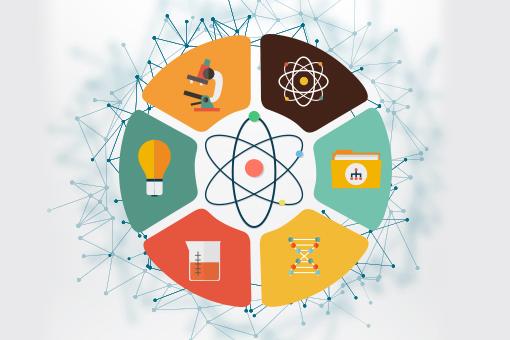“This is only temporary,” I told myself as I switched from pursuing my Ph.D. research to being a COVID-19 diagnostic technician. During the summer, I had been volunteering in a diagnostic laboratory, assaying samples for the presence of SARS-CoV-2. Now, the lab was offering to take over paying my stipend, tuition, and fees so I could commit more time to that work—and so my Ph.D. adviser wouldn’t have to support me while I did so. My research progress and graduation were my priority. At the same time, I wanted to continue to do my part to protect my community from the pandemic, as well as help out the lab and ease my adviser’s financial burden. I was torn between the needs of my community and my personal needs.


ILLUSTRATION: ROBERT NEUBECKER
“I am grateful my skills were useful during the pandemic.”
Prior to starting my Ph.D., I had spent several years working at state veterinary diagnostic laboratories. I enjoyed the diagnostic work, but I wanted to pursue Ph.D.-level research. Four years in, everything was going well as I learned how to combine the precision and speed from my diagnostic training with the flexible thinking and creativity needed for research.
Then, of course, the pandemic hit. My research was mostly stalled as my lab was closed, and I was feeling helpless and frustrated at home. I was interested to learn about a public health effort to track the virus in our community, a collaboration between my university and the county health department—and that veterinary diagnostic labs were pitching in. I realized I had the knowledge and training to help with the project, called TRACE COVID-19. Despite having left diagnostics, now was not the time to focus on my personal career goals. I was done watching from the sidelines.
Initially, I volunteered in the diagnostic lab 8 to 10 hours a day, a few times a week. It seemed like a rewarding use of my excess time. But my adviser didn’t approve. He was paying me, after all, and didn’t think I should be dedicating time to diagnostics. Still, I continued to volunteer through the summer months, using the time when I would otherwise be quarantining at home. When my research lab opened at limited capacity, volunteering did not hinder my research progress.
But when the diagnostic laboratory offered to fund me, I faced a dilemma. I worried that if the diagnostic lab took over my funding, it might be logistically challenging to fully return to my Ph.D. research when the time came. At the same time, I didn’t want to abandon my work with the diagnostic lab. My adviser also encouraged me to keep working for TRACE, saying it would augment my CV. So, I naïvely forged ahead, thinking I could work on my research in my spare time.
Instead, TRACE consumed my life. The number of samples delivered daily was overwhelming, and in the evenings, I faced the onslaught alone. I skipped meals and neglected exercise, and my mental health suffered. But I kept telling myself it was only temporary.
By the end of the fall term, I was burned out and ready to transition back to research. To my dismay, my adviser was running low on funding. My “temporary” decision was looking more and more permanent, and what had begun as rewarding work was becoming a ball and chain.
Extricating myself took flexibility, creativity, and patience. I reached out to faculty members for advice and support, and everyone was willing to help—something I had forgotten during my isolation in the diagnostic lab. One of them encouraged me to apply for a position at a local biotech company. I was thrilled when the company offered me the job, as well as the funding I needed to complete my degree. My way forward was now clear.
I don’t regret my time with the TRACE project, despite the sacrifices to my research progress and mental health. I am grateful my skills were useful during the pandemic. And I’ve learned that, when I encounter detours and setbacks on my career path, I should look to the bigger picture and remind myself that it’s only temporary.


